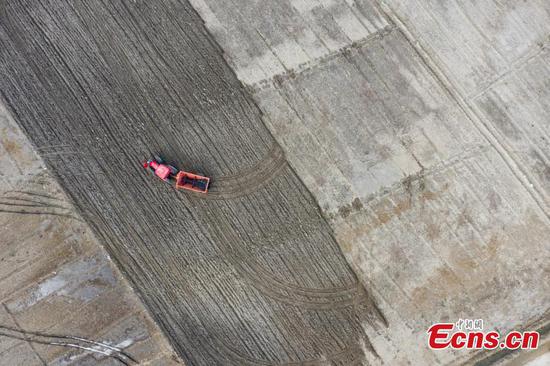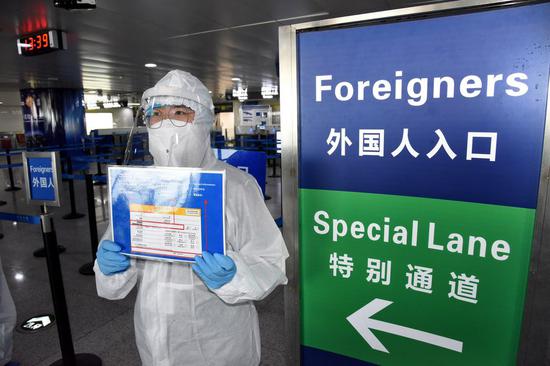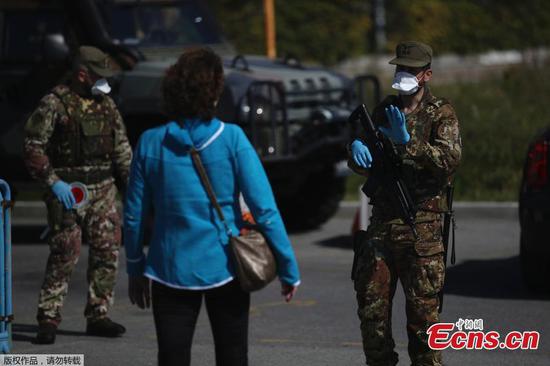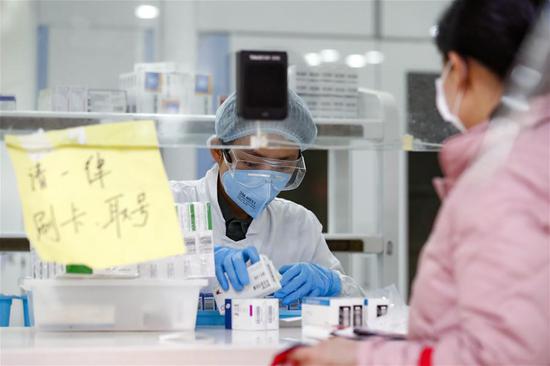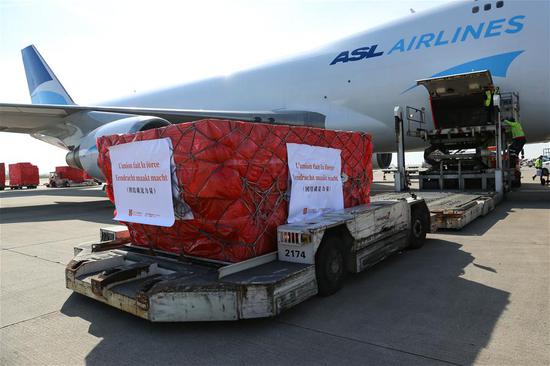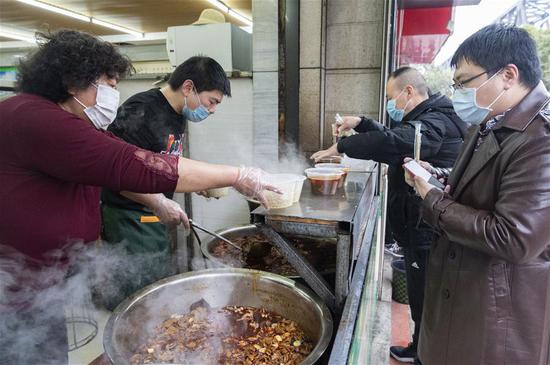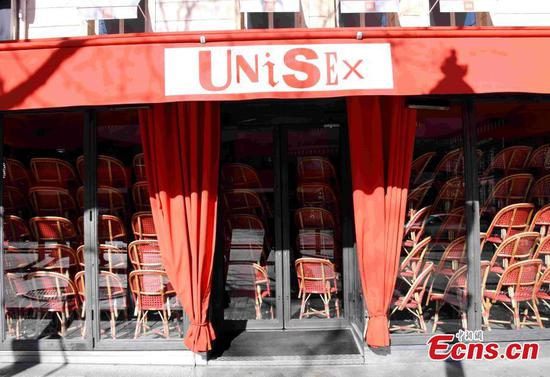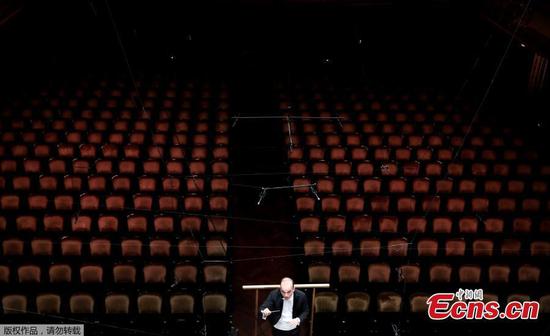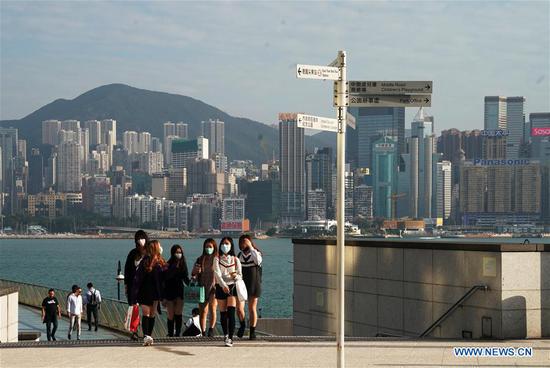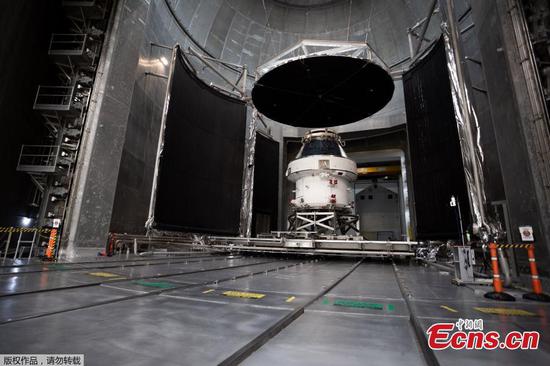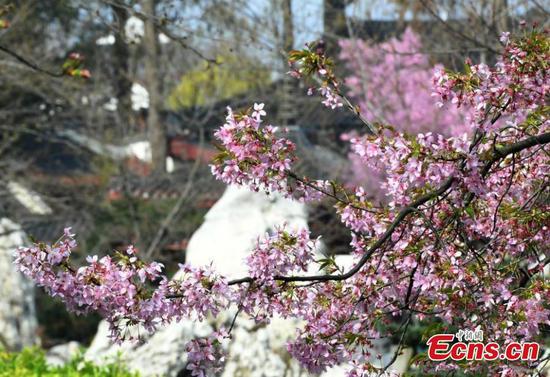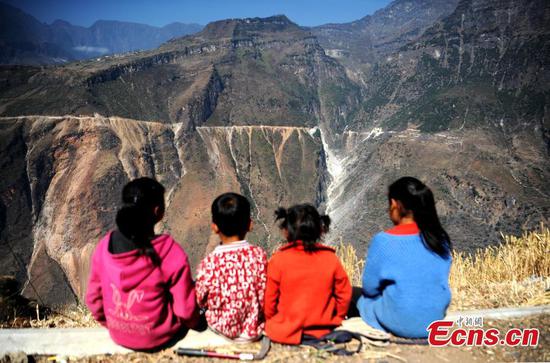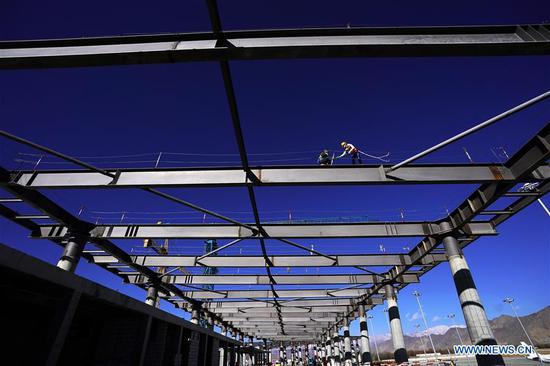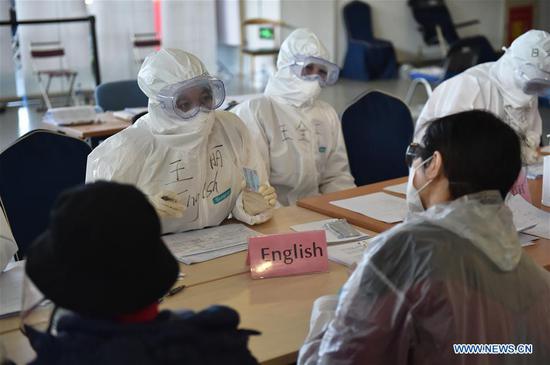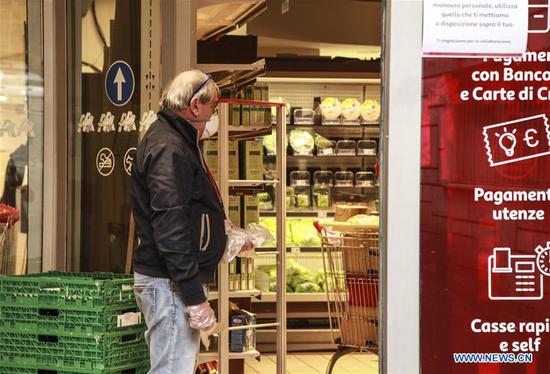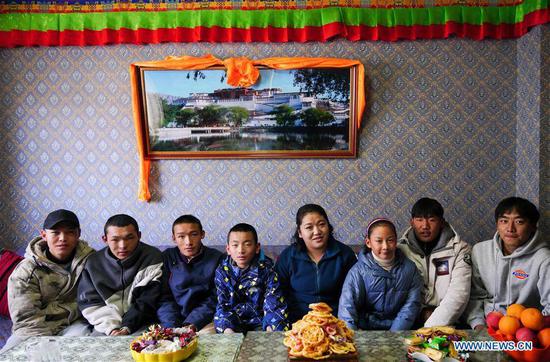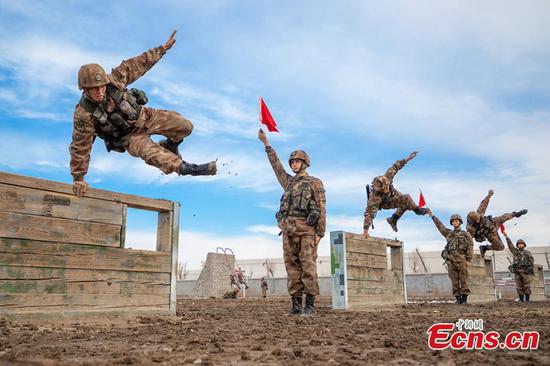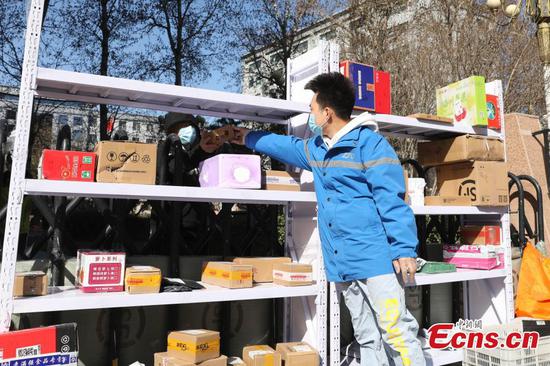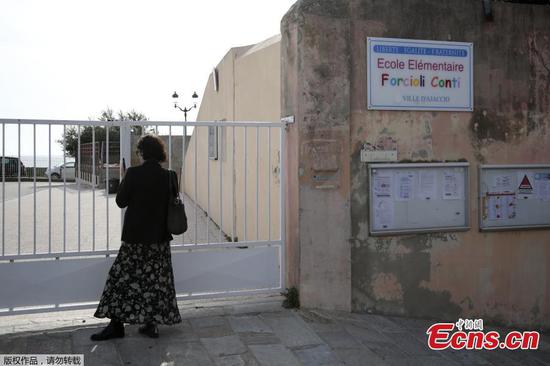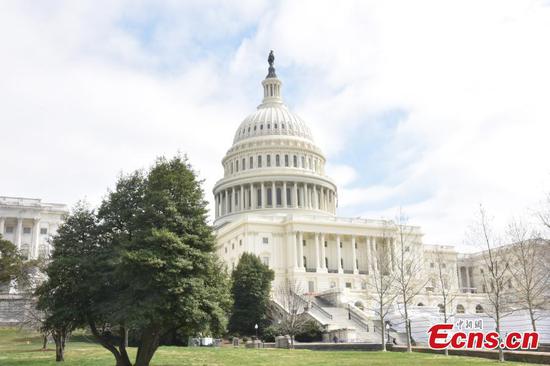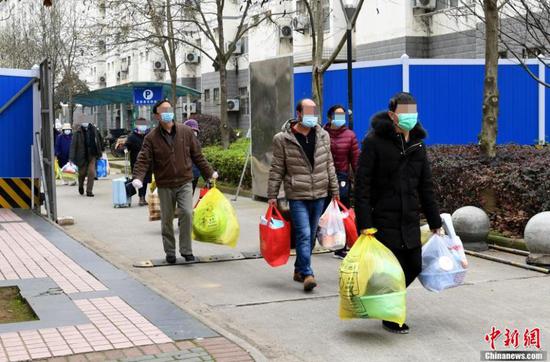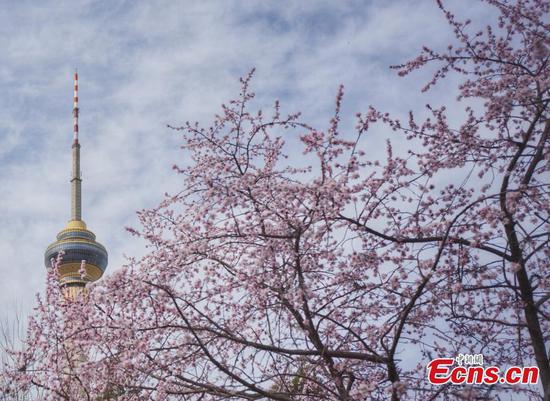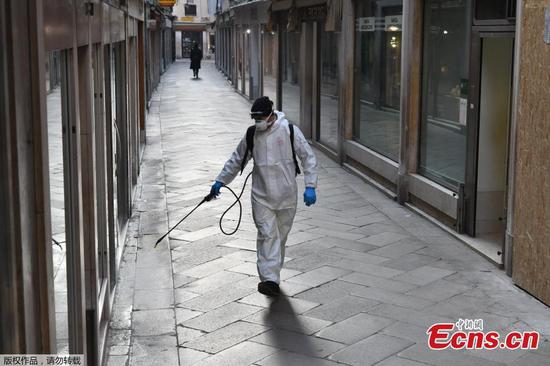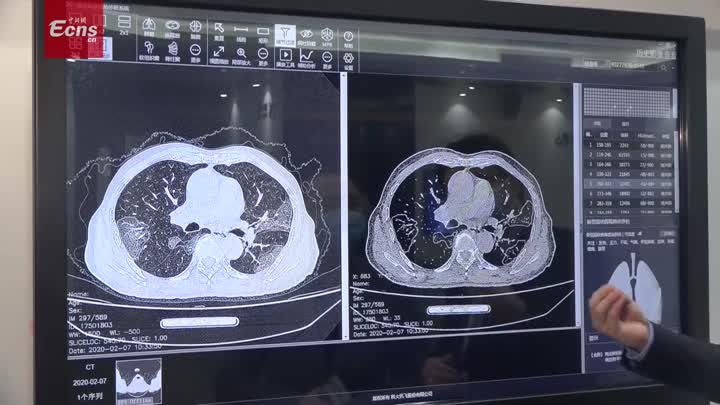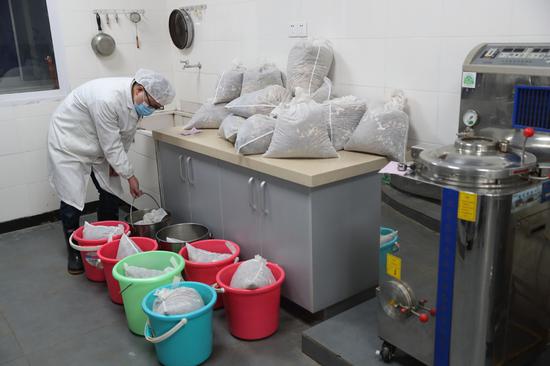
A doctor soaks packs of traditional Chinese medicine before boiling them at the Sixth Hospital of Wuhan in Hubei province on March 14, 2020. (Photo by Wang Jing/China Daily)
With the novel coronavirus epidemic under control in China, the country is ready to share its experience using traditional Chinese medicine with the international community.
"There are several scientific research institutions in South Korea, Japan and Italy that have sent requests to us, hoping that we can share our experience using Chinese medicine in epidemic control," said Zhang Boli, president of the Tianjin University of Traditional Chinese Medicine and academician of the Chinese Academy of Engineering.
"TCM practitioners are ready to share treatment experience and research results with foreign counterparts."
Jacky Lin, CEO of Netherlands-based Zhong Hua International Trading BV, a TCM wholesaler, said many Europeans trust Chinese medicine.
"TCM treatment is significantly effective in Wuhan. This is a hopeful turning point," said Lin, who has been in the TCM business for a decade. "I believe more and more people will choose Chinese medicine."
He Jun, head of Qihuang College of TCM from Italy, confirmed that many local Chinese medicine stores are providing TCM for not only Chinese but also many Italians.
Clinical practice has proved that TCM has significant efficacy in preventing and treating novel coronavirus pneumonia.
Official figures showed that, up to Sunday, 91.6 percent of the patients in Hubei province and 92.4 percent of the patients nationwide have been treated with TCM.
Wuhan's Wuchang district was one of the first to use TCM to prevent and control the epidemic at the community level.
"TCM helps not only to prevent diseases from spreading, but also to stop the development of diseases, saving time and lives," said Xiang Yue, deputy head of Wuchang district government.
Xiang said the local government has provided more than 10,000 boxes of TCM medicine for its 20,000 residents for novel coronavirus prevention and treatment since Feb 3, and after 14 days of TCM treatment, the number of infected and deaths fell sharply.
Tong Xiaolin, an academician of the Chinese Academy of Sciences and chief researcher of the China Academy of Chinese Medical Sciences, said that he worked out the prescription to save patients and medical staff with the local health committee.
"From the perspective of TCM, this disease is the result of a combination of viruses, humid environment and abnormal temperature. If we cannot defeat the enemy head-on, we can find another way to improve our own immunity to defeat the virus," Tong said.
"About 10 days ago, I connected with Iran and Italy through the World Federation of Acupuncture-Moxibustion Societies to learn how things were going in those countries. I have shared the prescriptions used in Wuhan with many doctors in many nations."
Tong's explanation was confirmed by Doctor Mohammad Sajadi, an associate professor of the Institute of Human Virus and the Global Virus Network Center of Excellence at the University of Maryland School of Medicine.
Sajadi published a paper on March 9 stating that there was a correlation between the novel coronavirus, latitude and temperature.
Zhang Boli, the academician at Tianjin University of TCM, said that in the past 10 or more years, he has built a component library of more than 60,000 TCM herbs.
"The coronavirus, found in 2006, is not new to us. We have conducted research on its replication, inhibition and antagonism to inflammation," he said. "With computer screening, we know which herb we can prescribe to treat patients."









